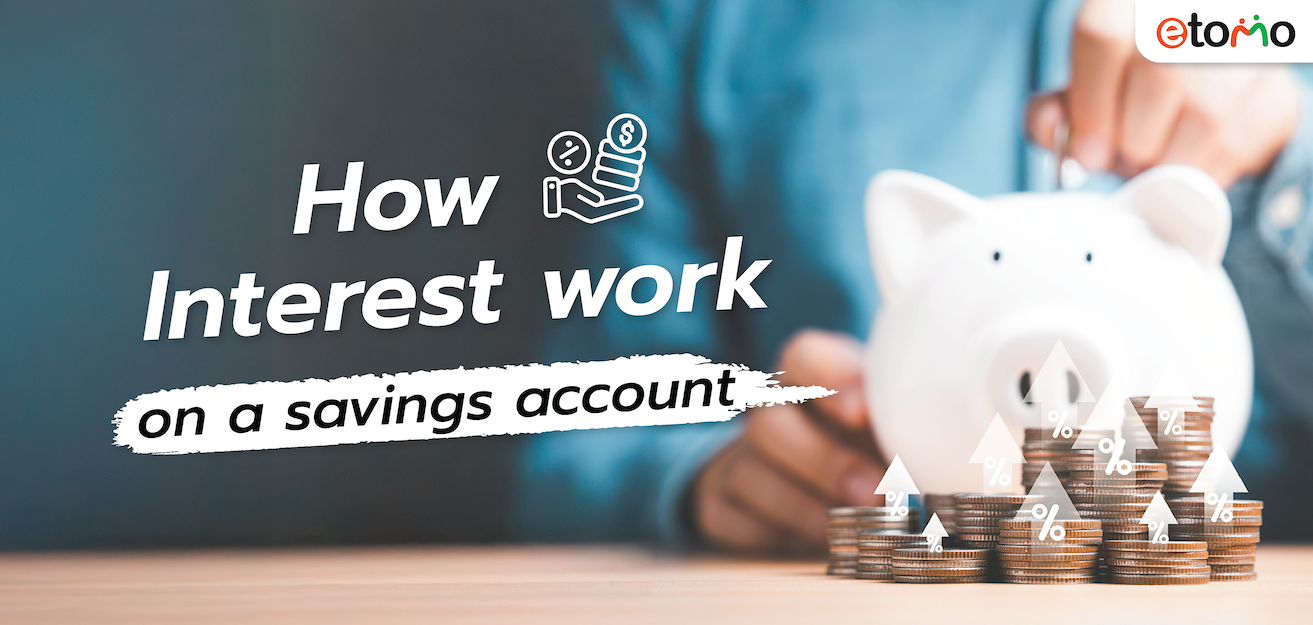Understanding how interest works on a savings account is key to making the most of your savings. Here’s a simple guide to help you grasp the concept and maximize your earnings.
1. What is interest?
Interest is the amount of money the bank pays you for keeping your money in a savings account. Think of it as a reward for letting the bank use your money. The bank, in turn, uses your deposits to make loans to other customers, and they pay you interest as a share of the profits they earn.
2. Understanding interest rates:
The interest rate is expressed as a percentage and determines how much interest you earn on your savings. For example, if you have PHP1,000 in a savings account with a 2% annual interest rate, you’ll earn PHP20 in interest over a year.
3. Simple interest vs. Compound interest:
- Simple interest: This is calculated only on the original amount you deposited (the principal). For example, if you have PHP1,000 in a savings account with a 2% simple interest rate, you’ll earn PHP20 each year.
- Compound interest: This is calculated on the principal plus any interest you’ve already earned. If your PHP1,000 account earns 2% interest compounded annually, you’ll earn PHP20 in the first year, and in the second year, you’ll earn interest on PHP1,020 (your initial PHP1,000 plus the PHP20 earned in the first year). This means you’ll earn PHP20.40 in the second year.
4. How often is interest compounded?
Interest on savings accounts is typically compounded daily, monthly, quarterly, or annually. The more frequently interest is compounded, the more interest you’ll earn. For example, daily compounding means that interest is added to your account balance every day, so you’re earning interest on your interest more frequently.
5. The power of compound interest:
Compound interest can significantly boost your savings over time. Even with a modest interest rate, the effects of compounding can lead to substantial growth, especially if you leave your money in the account for many years.
6. Factors that affect your interest earnings:
- Interest rate: The higher the interest rate, the more money you’ll earn.
- Account balance: The more money you have in your account, the more interest you’ll earn.
- Compounding frequency: The more frequently interest is compounded, the faster your savings will grow.
- Time: The longer you keep your money in the account, the more interest you’ll earn due to the compounding effect.
7. How to maximize your interest earnings:
- Shop around: Compare interest rates from different banks and credit unions to find the best savings account for your needs.
- Look for high-yield accounts: Some banks offer high-yield savings accounts with better interest rates than standard savings accounts.
- Avoid fees: Ensure that the account you choose doesn’t charge fees that could eat into your interest earnings.
8. The importance of consistency:
Even though interest rates on savings accounts are often lower than other investments, regularly depositing money into your savings account can steadily grow your wealth over time. Consistency is key to taking full advantage of compound interest.






